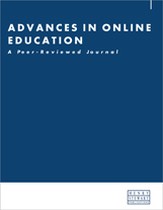What sparks curiosity? Student insights that inform online course design strategies to cultivate curiosity
Abstract
Curiosity has been connected to motivation, engagement and enhanced learning, but its role in course design, particularly in online courses, remains under-researched. This qualitative study explores how undergraduates enrolled in an asynchronous online general education literature course defined and experienced curiosity. Findings reveal that students view curiosity as a multi-dimensional process that entails emotional resonance, motivational drive and active exploration rather than an intellectual or behavioural state or trait. Their perspectives contrast with university stakeholders who often conceptualise curiosity as a measurable academic skill or learning outcome. The layered learning model identifies five key course design features and emphasises integrating the elements across the learning experience to create multiple ways for students to engage. Implications for faculty development, course design and pedagogy are noted along with recommendations for future research on cultivating curiosity in the online classroom.
The full article is available to subscribers to this journal (subscription is free).
Author's Biography
Rachel V. Smydra is an Associate Professor in Department of English, Creative Writing, and Film at Oakland University. In addition to teaching courses in writing and literature, she serves as the Internship Coordinator for English majors to assist students in bridging their academic studies with real-world professional experiences. Rachel has published research on critical thinking, reflection and active learning strategies to foster student engagement. Her current projects centre around faculty perceptions of academic writing and infusing a geocritical lens into the literature classroom.
Citation
Smydra, Rachel V. (2025, September 1). What sparks curiosity? Student insights that inform online course design strategies to cultivate curiosity. In the Advances in Online Education: A Peer-Reviewed Journal, Volume 4, Issue 1. https://doi.org/10.69554/IAUF4290.Publications LLP
